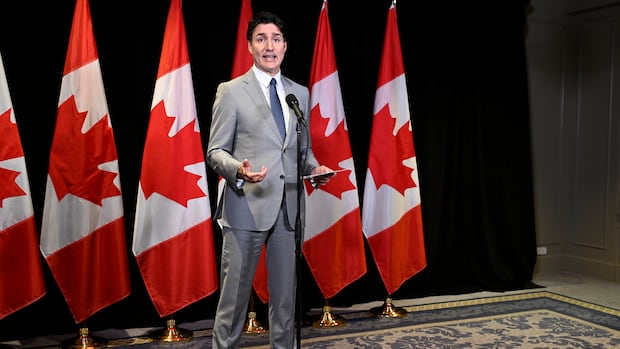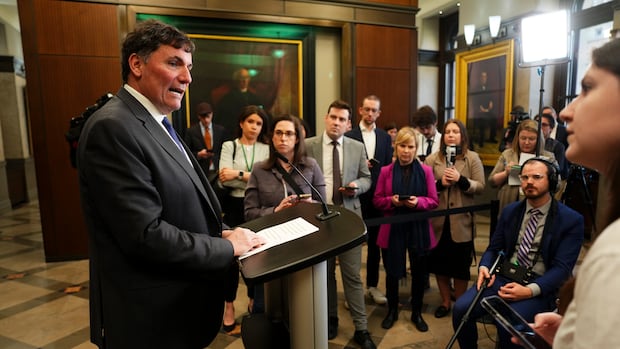
How can the federal government prevent other countries from trying to meddle in Canada’s elections?
That will be the focus as the public inquiry into foreign interference begins its second phase of hearings on Monday.
To get the answer to that question, the inquiry is expected to hear from more than 60 witnesses over the next five weeks, including members of Parliament, cabinet ministers and Prime Minister Justin Trudeau.
The inquiry, headed by Quebec Court of Appeal Justice Marie-Josée Hogue, was set up following media reports that accused China of interfering in the 2019 and 2021 federal elections.
In her initial report, made public in May, Hogue found that while it was possible that foreign interference occurred in a small number of ridings, she concluded it did not affect the overall election results.
In its second phase, the inquiry will focus on just how equipped the government is to combat foreign interference in elections and how that capacity has evolved over time.
On Friday, Hogue provided a glimpse into the work the inquiry has been conducting behind the scenes since its last public hearings and initial report.
To date, more than 140 individuals and groups have responded to the inquiry’s call for submissions, including confidential submissions.
In August and September, Hogue travelled the country to meet with members of diaspora communities “likely to be particularly affected by foreign interference and transnational repression.” During the meetings, which took place in private and undisclosed locations, members of those communities shared their experiences and outlined measures they believe could better protect them.
Over the course of 22 meetings, Hogue met with 105 people from several diaspora communities: Chinese, Uyghur, Hong Kong, Tibetan, Sikh, Indian, Russian, Falun Gong practitioners, Ukrainian, Tamil, Eritrean, Tigrayan and Iranian.
The public hearings in the new phase of the inquiry are expected to include panels made up of members of diaspora communities.
Inquiry has access to intelligence reports
The inquiry also gained access in recent weeks to additional cabinet documents that, since 2018, “were prepared and used by officials from [the Canadian Security Intelligence Service], or other officials involved in national security, to brief cabinet or its committees on matters related to foreign interference that are strictly operational in nature.”
Access has also been given to the intelligence reports that were provided to the National Security and Intelligence Committee of Parliamentarians (NSICOP) that led to its bombshell report tabled in Parliament in June.
In its 84-page report, the cross-party committee of MPs and senators granted top-security clearance alleged that some parliamentarians, which it did not name, have actively helped foreign governments like China and India interfere in Canadian politics.
Prime Minister Justin Trudeau says his government will support a Bloc Québécois motion that calls for a public inquiry into a report that claims parliamentarians helped foreign states.
The inquiry said it’s carried out in-camera hearings with senior government and intelligence agency officials about the intelligence and the investigations that contributed to the NSICOP report.
“The commission intends to call these witnesses in its upcoming public hearings,” the inquiry wrote in its update on Friday. “The commission is also working towards making public, to the maximum extent possible without causing injury to national security and within the limits of its duty to act fairly, a summary of the evidence obtained in camera.”
However, the inquiry warned not to expect it to name those parliamentarians, pointing out that the allegations in the NSICOP report are based on classified information that can’t be disclosed to the parliamentarians alleged to have helped foreign governments.
“As a result of its dual obligations to respect national security confidentiality and the rules of procedural fairness, the commission cannot make any findings that might identify the individuals involved in the allegations.”
However, it said, “the commission’s mandate does allow it to examine, report on, and make certain findings and recommendations in respect of the allegations in the NSICOP report, and it intends to do so.”
The current phase of the inquiry’s public hearings runs until Oct. 16, followed by five days of policy consultations that begin on Oct. 21.
Minister of Public Safety, Democratic Institutions and Intergovernmental Affairs Dominic LeBlanc, speaking after Justice Marie-Josée Hogue released her initial report on foreign interference, says the government has been working for months to improve how information and intelligence is shared within government.

